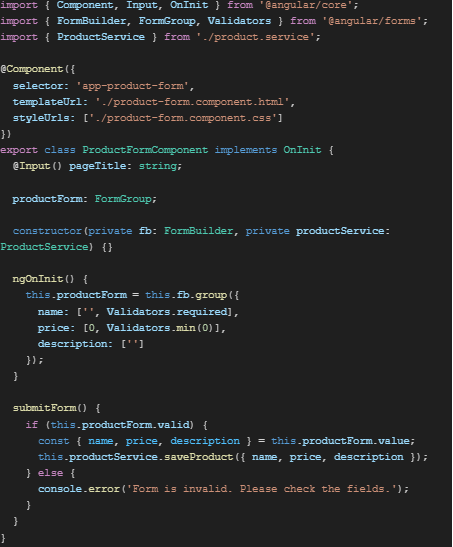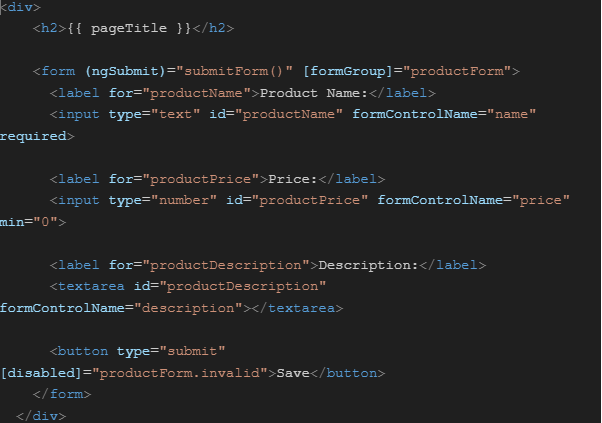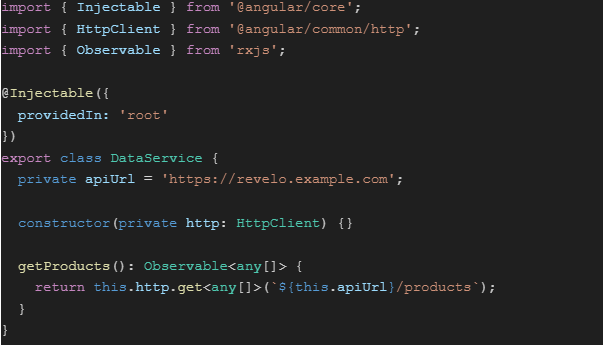

For Companies
For AI Labs
For Developers
Use Cases
Customer Stories
Get added peace of mind with Revelo’s risk-free trial. If you’re not satisfied with your hire within the first 14 days: You pay nothing, and we’ll find you a new candidate at no additional cost.










Ademir G.
Experience
8 years
AVAILABILITY
Full-time

Jorge R.
Experience
8 years
AVAILABILITY
Full-time

Alexandre C.
Experience
8 years
AVAILABILITY
Full-time

Benjamín G.
Experience
7 years
AVAILABILITY
Full-time

Nelly G.
Experience
10 years
AVAILABILITY
Full-time

Miguel F.
Experience
7 years
AVAILABILITY
Full-time
Rigorously vetted for technical and soft skills. Expertly hand-picked for your needs
Work synchronously with developers in the same or overlapping US time zones
Get shortlists within 3 days and hire in as fast as 2 weeks
Go further and reduce the overhead of sourcing, hiring, and talent management
Angular Material | NG Bootstrap | NG Semantic UI | Prime NG | Clarity | NGX Bootstrap | NG Zorro | Onsen UI | Vaadin | Clarity | Ignite UI | ngSemnatic | Kendo | Augury
Angular Bootstrap | Mobile Angular UI | Ionic | Angular Foundation | Radian | Mean IO | NativeScript | Nebular
Facebook API | Instagram API | YouTube API | Spotify API | Apple Music API | Google API | Jira REST API | GitHub API | SoundCloud API
Amazon Web Services (AWS) | Google Cloud Platform (GCP) | Linux | Docker | Heroku | Firebase | Digital Ocean | Oracle | Kubernetes | Dapr | Azure | AWS Lambda | Redux
MongoDB | PostgreSQL | MySQL | Redis | SQLite | MariaDB | Microsoft SQL Server
As the number of companies leveraging the Angular framework grows, so does the demand for Angular developers to build and maintain front-end applications. With this comes the increased need for organizations to find, hire, and retain highly skilled Angular developers.
Angular developers are specialized professionals adept at using Angular, a powerful JavaScript framework developed and maintained by Google. This framework is known for its incredible ability to breathe life into static HTML content, creating dynamic and responsive web experiences that engage users.
Organizations looking to hire Angular developers are on a path to build robust, scalable, interactive web application interfaces. However, hiring such specialized talent isn't without challenges. Finding professionals who exhibit technical proficiency and align with your company's culture and vision is often difficult.
Angular development is a process that leverages the Angular framework, an open-source web application framework, to construct dynamic, single-page web applications. This framework utilizes HTML as a template language and extends HTML's syntax to effectively express web application components. Angular interprets these components as directives to manipulate HTML elements intuitively and efficiently.
Angular is particularly renowned for its two-way data binding feature, which means that any changes in the user interface instantly influence the underlying data model and vice versa. This bidirectional data binding makes Angular preferred for interactive web projects like real-time dashboard applications, e-commerce sites, and dynamic content management systems.

Angular development is an excellent option for businesses that want to make large-scale applications that manage complex processes and workflows. Organizations leverage Angular development to build robust, responsive web applications aligning with their digital strategy. Angular’s component-based architecture allows developers to create reusable user interface components across stages of the app development process. Developers also utilize it to build real-time applications that include features such as live updates and chat apps.
Startups and established businesses also use Angular development to create dynamic, interactive e-commerce sites that offer customers engaging shopping experiences. Angular software development also integrates with multiple back-end services needed for services such as payment processing and inventory management.
Businesses take advantage of Angular development to create scalable, high-quality web applications. Some significant benefits of utilizing Angular development on a project include the following:

The role of Angular developers depends on your project demands. However, their principal objectives are creating, maintaining, and integrating user-facing elements of high performing web apps using the framework. Their goal is to ensure the seamless performance of applications and improve their user interface and experience.
When hiring Angular developers for your project, their typical tasks may involve the following:
On the technical side, Angular developers should have a deep understanding of the Angular framework and Angular concepts such as directives, modules, and services. Angular developers should also be well-versed in TypeScript and other programming languages beneficial to the development project.
Knowledge of server-side languages like Python and Java also benefits Angular developers, giving them an end-to-end understanding of the entire workflow of web apps. Angular developers must communicate clearly with team members and integrate RESTful APIs with back-end systems. Understanding Agile methodologies also enhances an Angular developer’s ability to collaborate effectively.
Adaptability and creativity are also essential skills that an Angular developer should have. Programmers who are able to think creatively and show problem-solving ability for unexpected issues will facilitate rapid development and alleviate potential bottlenecks that would hold up the rest of the team.
Excellent communication is another important skill that Angular developers should possess. Developers need to work with other team members and managers, some of whom may not be familiar with programming. Angular developers should be able to simplify their tasks so that project stakeholders are able to understand them and determine the best way forward with the information.
To be effective, Angular developers must know the programming language TypeScript and its features. TypeScript is an object-oriented language and an extension of JavaScript. It allows developers to detect errors early and write more readable code. Developers are able to utilize any pre-existing JavaScript code and libraries in TypeScript.
Angular developers benefit from understanding several programming languages apart from TypeScript. Some of the most advantageous languages for an Angular developer include:
Top Angular developers use libraries and frameworks to enhance efficiency and develop more streamlined workflows. Some of the common libraries and frameworks that Angular developers may use include:

Build your remote software engineering team in any tech stack. Our talent pool of senior software developers are pre-screened across 100+ skills.
Looking for work? Apply here
Yes, if for any reason you find the developer you hire isn't a good fit within the first 14 days - you pay nothing or we can find you a replacement at no additional cost.
Hiring a full-time developer through Revelo is a simple 3-step process. First, you tell us your hiring needs. Second, we match you to the best developers within 3 days. Third, you interview the candidates you like and hire the one you like most.